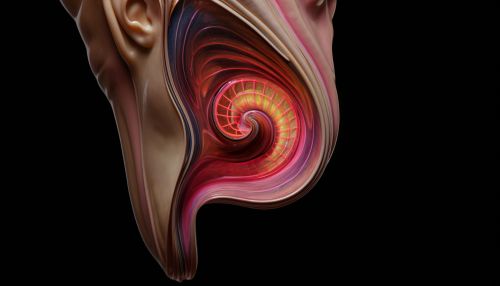Hearing loss
Introduction
Hearing loss, also known as hearing impairment, is a partial or total inability to hearHearing. It can occur in one or both earsEars. Problems with hearing can occur at any age and can be caused by many different factors. It is one of the most common conditions affecting older adultsAgeing[1].


Types of Hearing Loss
Hearing loss can be categorized into three main types: conductive, sensorineural, and mixed hearing loss.
Conductive Hearing Loss
Conductive hearing loss occurs when there is a problem conducting sound waves anywhere along the route through the outer ear, tympanic membrane (eardrum), or middle ear (ossicles)[2]. This type of hearing loss can often be corrected with medical treatment or surgery[3].


Sensorineural Hearing Loss
Sensorineural hearing loss (SNHL) is caused by damage to the structures within your inner ear or your auditory nerve[4]. It is the most common type of permanent hearing loss and usually cannot be medically or surgically corrected[5].
Mixed Hearing Loss
Mixed hearing loss is a combination of conductive and sensorineural hearing loss, which means there may be damage in the outer or middle ear and in the inner ear or auditory nerve[6].
Causes of Hearing Loss
There are several causes of hearing loss, including aging, exposure to loud noise, certain medications, and certain illnesses[7].


Aging
Age-related hearing loss, also known as presbycusis, is the loss of hearing that gradually occurs in most individuals as they grow older[8].
Noise Exposure
Exposure to loud noise can damage the structures in the inner ear and lead to noise-induced hearing loss (NIHL)[9].
Medications
Certain medications, known as ototoxic medications, can damage the inner ear and cause hearing loss[10].
Illnesses
Certain illnesses, such as meningitis, mumps, and measles, can lead to hearing loss[11].
Symptoms of Hearing Loss
Symptoms of hearing loss can vary depending on the type of hearing loss, the cause of hearing loss, and the degree of loss[12].


Diagnosis of Hearing Loss
Hearing loss can be diagnosed through a series of tests conducted by an audiologist[13].
Treatment of Hearing Loss
Treatment for hearing loss will depend on the cause and severity of the hearing loss. Options may include medical treatment, surgical intervention, hearing aids, cochlear implants, and other assistive devices[14].


Prevention of Hearing Loss
Prevention strategies for hearing loss include protecting the ears from damage, getting regular hearing checkups, and managing underlying conditions that may contribute to hearing loss[15].
Impact of Hearing Loss
Hearing loss can have significant impacts on quality of life, including difficulties with communication, social isolation, and increased risk of mental health conditions[16].
See Also
References
- ↑ https://www.nidcd.nih.gov/health/age-related-hearing-loss
- ↑ https://www.asha.org/public/hearing/conductive-hearing-loss/
- ↑ https://www.mayoclinic.org/diseases-conditions/conductive-hearing-loss/diagnosis-treatment/drc-20350177
- ↑ https://www.asha.org/public/hearing/sensorineural-hearing-loss/
- ↑ https://www.mayoclinic.org/diseases-conditions/sensorineural-hearing-loss/diagnosis-treatment/drc-20351269
- ↑ https://www.asha.org/public/hearing/mixed-hearing-loss/
- ↑ https://www.mayoclinic.org/diseases-conditions/hearing-loss/symptoms-causes/syc-20373072
- ↑ https://www.nidcd.nih.gov/health/age-related-hearing-loss
- ↑ https://www.cdc.gov/nceh/hearing_loss/how_does_loud_noise_cause_hearing_loss.html
- ↑ https://www.asha.org/public/hearing/Ototoxic-Medications/
- ↑ https://www.who.int/news-room/fact-sheets/detail/deafness-and-hearing-loss
- ↑ https://www.mayoclinic.org/diseases-conditions/hearing-loss/symptoms-causes/syc-20373072
- ↑ https://www.asha.org/public/hearing/How-Is-Hearing-Loss-Diagnosed/
- ↑ https://www.nidcd.nih.gov/health/hearing-aids
- ↑ https://www.cdc.gov/nceh/hearing_loss/prevent.html
- ↑ https://www.who.int/news-room/fact-sheets/detail/deafness-and-hearing-loss
